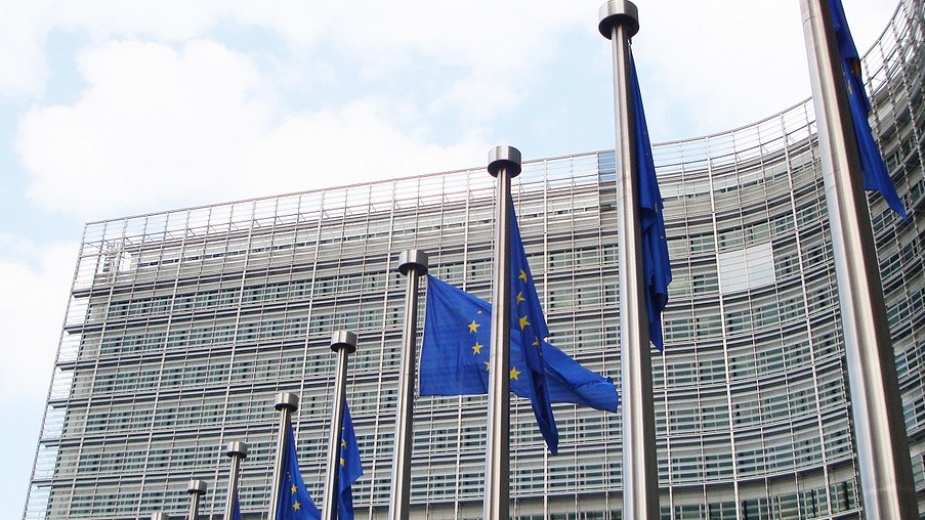COMMISSION APPROVES €770 MILLION BULGARIAN EMPLOYMENT AID SCHEME FOR PRESERVING JOBS IN SECTORS MOST AFFECTED BY THE CORONAVIRUS OUTBREAK
The European Commission has approved a BGN 1.5 billion (approximately €770 million) Bulgarian wage subsidies support scheme for preserving employment in the sectors most affected by the confinement measures put in place due to the coronavirus outbreak. The scheme was approved under the State aid Temporary Framework adopted by the Commission on 19 March 2020, as amended on 3 April 2020.
Executive Vice-President Margrethe Vestager, in charge of competition policy, said: “In these difficult times, preserving employment in sectors that are particularly exposed to the economic impact of the coronavirus outbreak is of utmost importance. It matters to the livelihoods of many workers and it will allow the European economy to bounce back strongly after the crisis. The Bulgarian scheme we approved will help thousands of workers to keep their jobs and undertakings to resume their activities as soon as the circumstances allow it. We work with Member States to ensure that this is done in line with the EU rules.”
The Bulgarian support measure
Bulgaria notified to the Commission under the Temporary Frameworka wage subsidy aid scheme that would allow the Bulgarian authorities to finance60% of the wage costs (including the employers' social security contributions) of undertakings that, due to the coronavirus outbreak, would otherwise lay off personnel. The measure is restricted to undertakings active in the sectors most affected by the current public health crisis, such as retail, tourism, passenger transport, culture, sports activities, amusement and recreation activities and others.
The Commission found that the Bulgarian scheme is in line with the Temporary Framework. In particular, (i) the measure will compensate the wage costs of undertakings active in sectors that are particularly affected by the coronavirus outbreak, provided that they commit to maintain in continuous employment personnel that would otherwise have been laid off, (ii) the aid intensity complies with the maximum 80% allowed by the Temporary Framework and (iii) the aid scheme respects the maximum duration of twelve months.
The Commission therefore concluded that this measure is necessary, appropriate and proportionate to remedy a serious disturbance in the economy of a Member State, in line with Article 107(3)(b) TFEU and the conditions set out in the Temporary Framework.
On this basis, the Commission approved the measures under EU State aid rules.
Background
The Commission has adopted a Temporary Framework to enable Member States to use the full flexibility foreseen under State aid rules to support the economy in the context of the coronavirus outbreak. The Temporary Framework, as amended on 3 April 2020, provides for the following types of aid, which can be granted by Member States:
(i) Direct grants, equity injections, selective tax advantages and advance payments of up to €100,000 to a company active in the primary agricultural sector, €120,000 to a company active in the fishery and aquaculture sector and €800,000 to a company active in all other sectors to address its urgent liquidity needs. Member States can also give, up to the nominal value of €800,000 per company zero-interest loans or guarantees on loans covering 100% of the risk, except in the primary agriculture sector and in the fishery and aquaculture sector, where the limits of €100,000 and €120,000 per company respectively, apply.
(ii) State guarantees for loans taken by companies to ensure banks keep providing loans to the customers who need them. These state guarantees can cover up to 90% of risk on loans to help businesses cover immediate working capital and investment needs.
(iii) Subsidised public loans to companies with favourable interest rates to companies. These loans can help businesses cover immediate working capital and investment needs.
(iv) Safeguards for banks that channel State aid to the real economy that such aid is considered as direct aid to the banks' customers, not to the banks themselves, and gives guidance on how to ensure minimal distortion of competition between banks.
(v) Public short-term export credit insurance for all countries, without the need for the Member State in question to demonstrate that the respective country is temporarily “non-marketable”.
(vi) Support for coronavirus related research and development (R&D) to address the current health crisis in the form of direct grants, repayable advances or tax advantages. A bonus may be granted for cross-border cooperation projects between Member States.
(vii) Support for the construction and upscaling of testing facilities to develop and test products (including vaccines, ventilators and protective clothing) useful to tackle the coronavirus outbreak, up to first industrial deployment. This can take the form of direct grants, tax advantages, repayable advances and no-loss guarantees. Companies may benefit from a bonus when their investment is supported by more than one Member State and when the investment is concluded within two months after the granting of the aid.
(viii) Support for the production of products relevant to tackle the coronavirus outbreak in the form of direct grants, tax advantages, repayable advances and no-loss guarantees. Companies may benefit from a bonus when their investment is supported by more than one Member State and when the investment is concluded within two months after the granting of the aid.
(ix) Targeted support in the form of deferral of tax payments









